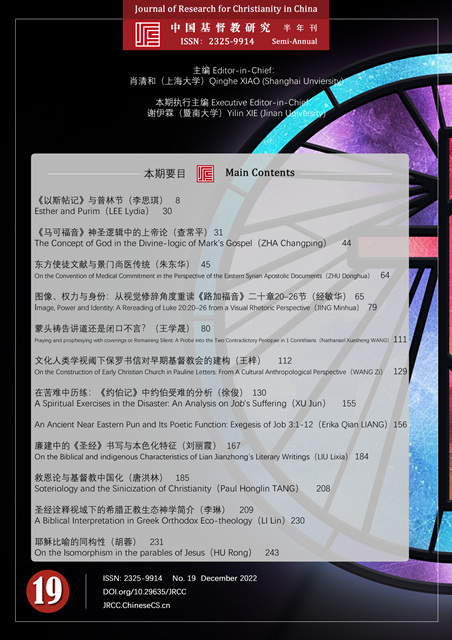Abstract
From a cultural anthropological perspective, this paper aims to explore how Pauline letters constructed the early Christian church by borrowing and adapting key concepts and images from ancient Roman culture of honor. After a brief introduction to culture of honor, the paper first discusses how Paul used the concept of family to construct the early believers' identity, that is, the believer's acquisition of the honorable status as the children of God through faith. Second, the paper discusses how Paul used the principle of reciprocity to construct the concept of fellowship, not only by emphasizing that believers should live morally in return for God's grace, but also by affirming that the honorable status of being the children of God is "righteous" in itself. Finally, the paper discusses how Paul responds to the problem of boasting in the culture of honor and highlights the absolute value of this new fellowship of faith in the hierarchy of honor. Understanding the construction of the Christian church in Pauline letters from a cultural anthropological perspective reveals the interaction between early Christian faith and the social culture of the time, also gives us the possibility to understand the core concepts of Christianity from a new communal perspective.

This work is licensed under a Creative Commons Attribution-NonCommercial-NoDerivatives 4.0 International License.
Copyright (c) 2022 Journal of Research for Christianity in China (JRCC)
